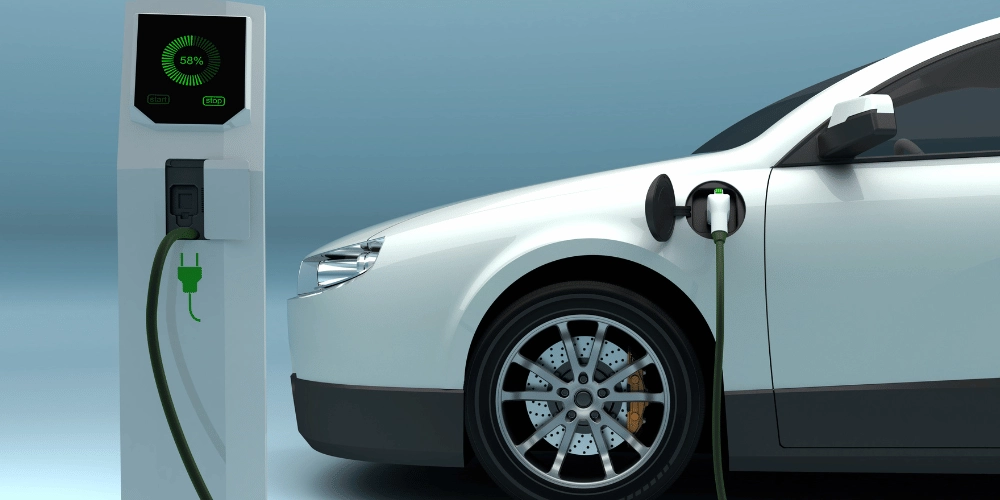Climate-Smart Savings: How UK Families Can Cut Bills with Heat Pumps and EVs by 2050
Anúncios
The Promise of Household Energy Savings
The drive towards a greener and more sustainable future offers not just environmental benefits but also significant savings for UK households.
By adopting low-carbon technologies, households could see an impressive annual saving of £1,400.
Anúncios
This reduction comes from a £700 cut in heating bills and another £700 in motoring costs, perfectly aligning with the UK’s ambition to reach net-zero emissions by 2050.
Heating Bill Savings with Low-Carbon Technologies
One of the most substantial savings for households comes from heating costs.
Anúncios
Transitioning from traditional gas boilers to efficient heat pumps can save around £700 each year.
Heat pumps are known for their efficiency, as they transfer heat rather than generating it, making them significantly more energy-efficient compared to gas boilers.
The UK government has plans to phase out new gas boiler installations from 2035, reinforcing the shift towards more sustainable heating solutions.
Motoring Cost Reductions with Electric Vehicles
Electric Vehicles (EVs) present a compelling case for cost reduction in motoring.
By making the switch to EVs, households can also save approximately £700 annually.
EVs are cheaper to run compared to petrol and diesel vehicles due to lower fuel and maintenance costs.
The introduction of EVs does not require households to rush and replace their existing vehicles.
Natural wear and tear timelines will allow a smooth transition to EVs over time.
Past trends show that such rollouts align with how rapidly other technologies, like mobile phones and internet connections, have been adopted.
Aligning with Net-Zero by 2050
These household savings are not just about reducing bills; they form part of the broader national goals for emissions reductions.
By embracing heat pumps and EVs, UK families contribute significantly to a third of the emissions cuts needed between 2038 and 2042.
According to the Climate Change Committee, apart from the substantial savings, this transition reduces the UK’s vulnerability to volatile fossil fuel prices, which have historically led to several economic downturns.
These steps represent a progressive shift towards sustainable living, reflecting how personal choices can have extensive economic and environmental impacts.
As we delve deeper into the specifics, the next section will explore the efficiency of heat pumps in detail, highlighting their advantages over traditional heating systems and the necessary government support to make their widespread adoption feasible.
Heat Pumps: A Smart Investment for Home Heating
Efficient Alternatives to Traditional Gas Boilers
| 🏠 Heating System | ⚡ Energy Source | 💰 Cost Efficiency | 🌍 Environmental Impact |
|---|---|---|---|
| Heat Pumps | Transfers heat from air or ground | Saves up to £700 annually | Low carbon footprint, eco-friendly |
| Gas Boilers | Burns fossil fuels (natural gas) | Higher fuel costs, fluctuating prices | High CO₂ emissions, less sustainable |
Phasing Out New Gas Boiler Installations
To accelerate the adoption of heat pumps, the UK government plans to phase out new gas boiler installations by 2035.
This regulation is essential for transitioning to low-carbon heating systems and meeting the UK’s net-zero emissions target by 2050.
As households prepare for this change, it’s vital to understand the benefits of heat pumps and the long-term savings they offer.
Government Support for Upfront Costs
One of the significant barriers to adopting heat pumps is the high upfront installation cost.
While these systems promise long-term savings, the initial investment can be substantial.
To address this, government support is crucial.
Financial incentives, subsidies, and grants can help households manage the upfront costs, making the transition more accessible, especially for lower-income families.
Removing green policy costs from power prices can also reduce the operational costs of running heat pumps, further encouraging their adoption.
By making these strategic investments now, households can enjoy reduced heating bills and contribute to a greener future.
The journey towards a sustainable home heating system starts with understanding the value and efficiency of heat pumps.
As we shift our focus to the next area of transformation—transport—it’s clear that embracing new technologies will play a pivotal role in achieving cost-effective and environmentally friendly living.
Electric Vehicles: The Future of Cost-Effective Transport
Transitioning to electric vehicles (EVs) is not only environmentally responsible but also financially savvy.
EVs hold the potential to save UK households an impressive £700 annually on motoring costs by mid-century.
These savings come from substantially lower fuel and maintenance costs compared to traditional gasoline and diesel-powered vehicles.
Long-Term Savings and Economic Benefit
EVs are a sound investment for the long haul.
They offer substantial savings on fuel, as electricity is generally cheaper than petrol or diesel per mile traveled.
Furthermore, EVs have fewer moving parts than internal combustion engine vehicles, leading to reduced maintenance and repair costs over time.
 In the long run the economy is great
In the long run the economy is great
Transitioning Naturally
You don’t need to rush to replace your current car with an EV immediately.
The transition can occur naturally as your existing vehicle reaches the end of its life.
This approach aligns well with historical adoption trends seen with other technologies, like mobile phones and the internet.
Gradual adoption allows for infrastructure to grow and technology to improve, making the switch smoother and more accessible for everyone.
Adoption Rates and Historical Comparisons
EV roll-out rates are expected to mirror the patterns seen with other widespread technological adoptions.
Looking at past trends, we can confidently say this transition won’t be disruptive but rather a steady and manageable shift, making it less daunting for households to commit to EVs.
As we gear up for a cleaner and more sustainable future, embracing these technologies will bring not only personal savings but also substantial economic and environmental benefits.
Now that we’ve discussed the financial upsides of adopting EVs, it’s essential to understand both the economic benefits and the challenges involved in this significant transition.
Economic Benefits and Implementation Challenges
Transitioning to low-carbon technologies like heat pumps and electric vehicles (EVs) promises economic benefits for UK households and the broader economy.
Estimates suggest that shifting to these technologies, which lower heating and motoring costs by £1,400 annually, could cost about 0.2% of the UK’s GDP by mid-century.
This upfront investment will come mostly from the private sector and will yield net savings by 2040 when compared to maintaining current fossil fuel usage.
Overall Costs and Economic Impacts
The overall costs of meeting the emissions reductions outlined in the UK’s net-zero plan are projected to be 0.2% of GDP.
Despite this seemingly modest figure, significant upfront costs, especially for installing heat pumps, need to be addressed.
The installation costs of heat pumps represent a “sizeable element” of the overall costs, prompting calls for government support, particularly for lower-income households.
The continued reliance on fossil fuels makes the UK economy vulnerable to energy price shocks.
Since the 1970s, energy price fluctuations have caused about half of the UK’s recessions, highlighting the economic instability tied to fossil fuel dependency.
Reducing this dependence by adopting heat pumps and EVs would not only stabilize household expenses but also insulate the UK from global energy market volatility.
Awareness and Misconceptions
A significant challenge in this transition is raising awareness and addressing misconceptions about new technologies.
Many households still harbor doubts about the affordability, reliability, and practicality of heat pumps and EVs.
Public awareness campaigns and clear, accurate information can help demystify these technologies and build consumer confidence in making the switch.
Additionally, a citizens’ panel indicated general support for cleaner heating and insulation but expressed concerns about the upfront costs and the practicality of implementing such changes.
Highlighting the long-term savings and environmental benefits while providing financial incentives and subsidies can shift public perception positively.
Also, making electricity cheaper and reducing green policy costs from power prices can enhance the attractiveness and economic feasibility of switching to heat pumps.
Ensuring these technologies are accessible and affordable will be vital in achieving widespread adoption and truly realizing economic benefits.
Transitioning to a low-carbon economy involves tackling these economic and perceptual challenges head-on while emphasizing the long-term gains for both households and the wider economy.
Making the Transition Accessible for All
Ensuring a smooth transition to low-carbon technologies like heat pumps and electric vehicles (EVs) for everyone, especially low-income households, is critical.
Support for Lower-Income Households
Switching to heat pumps and EVs comes with significant upfront costs that can be daunting for many, particularly lower-income families.
It is essential for the government to provide targeted support, such as financial incentives, subsidies, and grants, to alleviate these initial investments.
This assistance will make it possible for all households to benefit from reduced energy bills and motoring costs in the long run, contributing to an equitable transition.
Reducing Electricity Costs
One of the keys to maximizing the benefits of low-carbon technologies is reducing electricity costs.
Removing green policy costs from power prices can make electricity more affordable.
This, in turn, makes running heat pumps and charging EVs cheaper, enhancing their cost-effectiveness.
Ensuring competitive pricing for clean energy can lead to significant savings on household budgets and motivate more families to make the switch.
Building Consumer Confidence
Consumer confidence plays a vital role in the adoption of new technologies.
There is often hesitation due to misconceptions about affordability, reliability, and practicality.
Comprehensive information campaigns and transparency about the benefits and potential savings are necessary.
Easy-to-understand guides and incentives that highlight the long-term financial and environmental benefits can help build trust and encourage more households to transition.
By making these technologies accessible and affordable, we ensure that the transition to a low-carbon future is inclusive and beneficial for all.
This holistic approach aligns with the broader goal of economic and environmental sustainability, creating a resilient and equitable future.






